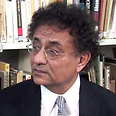A the numbers show, most of the Jews in Israel, 53%, support an amendment of the Nation-State law adding an equality clause, and 75% support adding the equality clause to the all basic laws.
Most Israelis, 74%, support the imposition of a core curriculum on ultra-Orthodox education. 72% support public transportation on the Sabbath, in one form or another. 72% are in favor of civil marriage and 55% do not want to marry through the rabbinate.
81% of the Jews in Israel support equality for all streams in Judaism and 60% of the Israelis support an easier conversion process.
62% support egalitarian prayer at the Western Wall. Let us not underestimate this. It is one of the most divisive issues between Israel and American Jewry.
Interestingly these questions do not reflect a dispute between secular and religious, or between the general public and the ultra-Orthodox.
Some 50% of those who define themselves as religious support civil marriage while half of those defined as Orthodox support a core curriculum in all Orthodox learning institutions.
We can go on. There are many other surveys, and caution is warranted. A significant difference in polling results exists in many areas, based on who commissions the poll.
But it seems that on primary issues, before we bring up the political controversy, surveys referred to here, do reflect public opinion reliably, since multiple surveys were done by multiple pollsters.
On politics there are indeed differences in polling results but putting aside polls commissioned by interested parties, in depth surveys can reveal a consistency in findings.
The peace index which surveys changes over time, showed a 48% support for the two-state solution to the Israeli Palestinian conflict during the Oslo accords, it rose to 70% in 2007, and was back at 47% in 2018. Only 10% support annexation of the West Bank according to the Institute of Nations Security Studies (INSS).
Even considering sampling errors, The conclusion must be that there is a large gap between the positions of the right-wing coalition, which is now and may continue to be in power, and the majority of the public. On matters of politics, the gap is even greater than appears.
Because at the end of 2017 the Likud Central Committee decided unanimously to recommend annexation of parts of Judea and Samaria, and most Likud ministers and MKs support complete annexation, with or without granting citizenship to West Bank Palestinians, in complete contrast, to a solid majority in the public.
Tomorrow the Israeli public will vote. Most voters hold very clear positions on key issues, but the majority will probably vote for parties that will force opposite stands us all.
This paradox exists not only among the Jewish voting public. Some surveys, show that the attitudes of Israeli Arabs are much more moderate than those of the Arab political parties.
It turns out that both Arabs and Jews treat their parties a bit like a soccer team. They support it for its image, a sense of belonging, identity, or because of historical animosities. And that's exactly the problem. Elections are not a soccer match. When Israelis, Arabs and Jews, vote according to their true positions, common interests will prevail. Until that happens, voters do not punish the opposing team - they punish themselves.


















